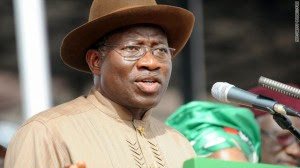Conflict and war: What is it good for?
Conflict and war: What is it good for?
London (CNN) -- The West is bombing terror group ISIS in Syria and Iraq, while Russia is engaged in a brittle stand-off in Eastern Ukraine. Bloodshed has dominated headlines through summer but, amid the misery, there is a winner: The defense industry.
 Which ISIS tips are taken seriously?
Which ISIS tips are taken seriously?
 McKeon: Our ISIS strategy is not working
McKeon: Our ISIS strategy is not working
 U.S., Arab nations attack ISIS in Syria
U.S., Arab nations attack ISIS in Syria
 How much are strikes costing taxpayers?
How much are strikes costing taxpayers?
 World security hinges on NATO
World security hinges on NATO
 Photos: Iraq under siege
Photos: Iraq under siege
 Here's why there's no ISIS oil shock
Here's why there's no ISIS oil shock
 ISIS profiting from seized oil
ISIS profiting from seized oil
 Photos: Syrian civil war in 2014
Photos: Syrian civil war in 2014
London (CNN) -- The West is bombing terror group ISIS in Syria and Iraq, while Russia is engaged in a brittle stand-off in Eastern Ukraine. Bloodshed has dominated headlines through summer but, amid the misery, there is a winner: The defense industry.
Since ISIS launched its major offensive in June, capturing vast areas of Syria and Iraq, defense stocks have bounced. And while this is not new, modern warfare is dictating new twists to the economics of conflict.
American companies
Lockheed Martin, Raytheon, General Dynamics and Northrop Grumman have
enjoyed steadily rising stock prices since ISIS rose to prominence.
British sector giant BAE Systems has also outperformed the market.
The trend reflects the
boom in defense stocks after the 1991 Gulf War and 9/11 attacks, when
investors piled into companies they believed would benefit from the
conflict.
Now, with two
high-profile conflicts that have dragged in the West, the sector is once
again being seen as a good bet -- but for different reasons.
Ukraine's conflict with
Russia -- one which is breeding a new Cold War with the West, as opposed
to the airstrikes targeting ISIS -- is likely to bring the bigger
economic boost, according to the International Security and Development Center's Tilman Bruck.
Bigger than bombs
In modern warfare it is
not ammunition, bombs or missiles that drives the expenditure. The U.S.
and its allies have stocks of weapons that can be used in bombing ISIS,
and can be easily replenished, according to Bruck.
Rather, the last two
decades has seen a shift in the West's participation in conflict to ones
directed from a distance, as defense become more sophisticated.
Europe, according to
Bruck, may no longer be capable of fighting against a "traditional"
attack. He argues that since the end of the Cold War, focus has shifted
from conflicts on Europe's doorstep to those in other regions, such as
the Middle East or Africa.
The rising stocks are a
reflection of investors' expectations Europe would invest in expensive
high-tech defense structures, in the light of its worsening relationship
with Russia, he said.
It is now obvious that we cannot take our security for granted. We will have to invest more in our defense and security.
Anders Fogh Rasmussen
Anders Fogh Rasmussen
"If we see defense
companies stock raising, it's because the West is realizing it is not
prepared for a war against Russia and its allies," Bruck said.
The Ukraine crisis was
at the heart of discussions during a recent NATO summit in Wales, where
the alliance's members agreed to increase their military spending.
"Russian aggression
against Ukraine is a wake-up call, and I think this is exactly what has
led capitals in NATO allied nations to reconsider defense investments,"
NATO's then-chief, Anders Fogh Rasmussen, told the summit.
"It is now obvious that
we cannot take our security for granted," he warned. "We will have to
invest more in our defense and security."
NATO treaties dictate
each of the alliance's 28 member nations spend 2% of their GDP on
defense, but few do. Relative stability in the Western world over the
last two decades has meant economic priorities shifted away from
military spending.
According to Rasmussen,
Russia increased defense spending by 50% in the last five years, while
NATO nations cut back on average 20%. Only Estonia, Greece, the U.S. and
the UK met the 2% expenditure target in 2013.
But the escalating
crisis on NATO's doorstep has prompted its member states to agree to
boost their spending over the next decade. This, too, has helped push
defense stocks up.
"If NATO countries lived
up to spending 2%, as they have committed on paper, that would be a
major demand shift," Bruck said. The market, he added, may have priced
this in.
Beyond defense
Defense companies aren't the only beneficiaries of warfare.
The estimated cost of rebuilding infrastructure in Iraq after the month-long war in 2003 reached $220.21 billion, according to a report by Stuart Bowen, the Special Inspector General for Iraq Reconstruction.
The U.S. taxpayers paid
$60 billion towards the programs during the nine years after the war,
the equivalent of around $15 million a day.
The money went into
areas including security, infrastructure, essential services, governance
and education. Billion-dollar contracts for the work on these projects
were a lucrative business for many companies.
According to the Bowen report,
engineering company Kellogg Brown& Root was awarded a no-bid
contract with a $7 billion ceiling to restore and operate Iraq's oil
infrastructure, the biggest reconstruction contract for Iraq's
rebuilding.
Controversially, at the
time of the award until its separation in 2006, KBR was a subsidiary of
Halliburton -- a company whose former CEO Dick Cheney was the U.S. vice
president at the time.
Black gold
Oil companies often get a
boost from conflict, as the price of petroleum tends to spike during
warfare. Prices went up sharply in the aftermath of the 2003 war in
Iraq: from $25 barrel in 2003 to a peak of over $140 in 2008.
However, the war with ISIS has yet to impact oil prices. ISIS is now running several refineries in Syria and Iraq but oil prices have fallen, as the terrorist group have not hit Iraq's far more important southern fields.
Experts say the
disruption to the market is still too small to push prices up and the
demand for oil in China and Europe is weakening, while production in the U.S. is on the rise.
Cyberwar threat
Cyberattacks are also becoming more prevalent as hackers spread propaganda from hotspots around the world.
ISIS has proved adept in
social media and with its online campaigns. According to media reports,
the terrorist group has also posted warning about a potential
cyberattacks against the West in retaliation for the airstrikes.
The Syrian Electronic Army is perhaps the most prominent group known to actively use hacking attacks
in support of conflict. The pro-Assad group has successfully hacked
websites of major Western media, including the Financial Times and BBC.
The attack was seen as an attempt to wrack havoc with media outlets.
Hackers from Russia have also been involved in several high-profile attacks. The FBI investigated a cyberattack against U.S. banks allegedly coming from Russia in August, while South Korea experienced attacks from IP addresses in China.
With the potential
danger of cyberattacks increasing, governments are companies are pouring
money into cybersecurity. Venture capital firms are expected to funnel $788 million into early-stage cybersecurity startups this year.
Criminal business booming
In the warzones, meanwhile, the bloody illegal economy is spreading.
ISIS is making at least a
$1 million a day through its smuggling of oil. The U.S.-led airstrikes
have targeted oil refineries and other assets in ISIS' control to cut
their funding. But to fully disrupt the flow, the West must also target
those who are willing to buy from ISIS, according to analysts. ISIS also
attempts to raise money through ransoms, although the U.S. and the UK refuse to pay such demands.
Smuggling routes to
Turkey -- which has now authorized the use of military force against
terrorist organizations, including ISIS -- are central to ISIS' oil
operations. Now, "tough questions" must be asked about the country's
role, Bruck said.
Source: CNN





Comments
Post a Comment